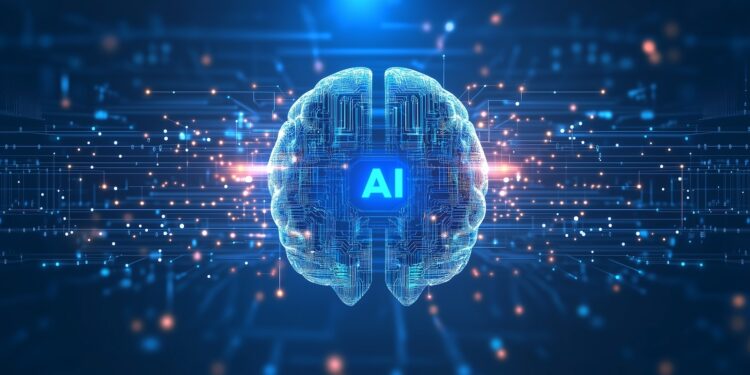Artificial intelligence is on everyone's lips. Whether in smartphones, search engines, or chatbots – you encounter AI everywhere. More and more people are asking a central question: Has AI already surpassed humans? Especially when it comes to so-called artificial general intelligence (AGI), discussions quickly become emotional. However, the current situation is more complex than many people think.
Films like "2001: A Space Odyssey," "Terminator," and "Ex Machina" have shaped the idea that AI will eventually develop its own consciousness and turn against humans. These scenarios often seem exaggerated, but they are based on a real question: How advanced is AI really? And what happens when they are no longer just tools, but independent actors?
What does artificial general intelligence (AGI) mean?
AGI (Artificial General Intelligence) is a hypothetical form of AI capable of performing any cognitive task as well as or better than a human. IBM describes AGI is the point at which an AI system learns, understands, communicates, and makes decisions independently, without human guidance. Unlike current language models, this isn't about simply imitating human behavior, but about true autonomy and awareness. The basis for this difference is important. Language models like ChatGPT or Google Gemini work with probabilities. They predict which word will best fit next. They don't "understand" anything in the human sense. AGI, on the other hand, would be a system that independently analyzes problems, develops creative solutions, and formulates its own goals.
How advanced is AI today?
The current state of affairs shows impressive developments. AI can write text, generate images, support medical diagnoses, and recognize complex data patterns. But this is not enough to speak of AGI. Despite reports that GPT-4.5 allegedly passed the Turing Test, many experts say this does not equate to true intelligence. The Turing Test merely tests whether a human can distinguish a computer from another human—not whether the machine actually thinks. In 2022, a Google engineer claimed that the LaMDA chatbot had developed consciousness. However, most experts considered this premature. These models imitate language—they do not understand it.
When could we reach AGI?
Opinions differ here. The well-known futurist Ray Kurzweil predicted back in 2005 that we would have AI comparable to human intelligence by 2029. He reiterated this prediction in 2024. In his view, AGI will expand humanity's collective intelligence by a billion times. Scientifically speaking, the average prediction is farther away. A 2022 expert survey of 738 machine learning researchers concluded that there is a 50 percent probability that AGI will not be achieved until around 2059. Many predict the second half of the 21st century. Others doubt that we will ever see AGI at all.
What distinguishes AGI from today’s AI?
AGI requires more than machine learning based on large amounts of data. It requires:
- Visual and auditory perception that functions depending on the context
- Creativity that is not only derived from existing
- Problem solving with common sense
- Initiative and goal pursuit
- Social and emotional intelligence
These properties require a comprehensive understanding of the world – something that today’s systems do not yet provide.
Are today's chatbots a step towards AGI?
Large language models such as ChatGPT, Gemini, and Claude deliver impressive results. Ilya Sutskever of OpenAI and Demis Hassabis of DeepMind believe such models could be a path to AGI. They argue that the way these systems make predictions reflects a kind of fundamental understanding. Other experts are more skeptical. François Chollet of Google, for example, sees language models as a dead end. He believes their hype is blocking real progress toward AGI. Yann LeCun of Meta shares this assessment and criticizes the fact that LLMs dominate research without solving the central problems of intelligence.
AGI: Vision, myth or soon reality?
Has AI surpassed human intelligence? Not yet. Today's systems are powerful, but far from what one would call AGI. The future of AI remains exciting and full of unanswered questions. Whether AGI is a realistic goal or a technological myth, no one can currently answer with certainty. The only thing that is clear is that development continues, and you should think along, have your say, and help decide where it leads. Here you'll find everything you need to make the most of the smart features of your Apple devices – have fun browsing and trying them out! Looking for the best accessories? Visit our Amazon Storefront and discover a wide variety of products from top providers, including HomeKit! (Image: Shutterstock / Anggalih Prasetya)
- MacBook Pro 2026: Apple plans the biggest upgrade yet
- M4 MacBook Air: Now it's worth switching from the MacBook Pro





